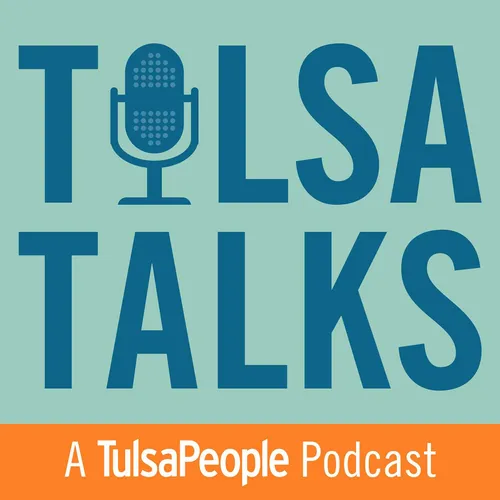Episode 6: Vanessa Hall-Harper, District 1 City Councilor
- Author
- Langdon Publishing
- Published
- Wed 17 Oct 2018
- Episode Link
- None
Today’s episode is sponsored by Care Card, benefiting Family and Children’s Services.
City Councilor Vanessa Hall-Harper gives us a debrief of why civilian oversight might be the next step to mend relations between community and police.
Later on, Ian Swart from the Historical Society shares a spooky true crime story about a serial killer, a correspondence club, and a string of ex-husbands.
So let’s talk, Tulsa.
“I’m married to a cop for 25 years, so I have a unique perspective.”
That’s District 1 City Councilor Vanessa Hall-Harper.
In recent interviews with the Tulsa World, representatives from TPD has emphasized how much the department has changed its academy curriculum in recent years. Capt. Matt McCord, assistant director of training, says that these days, they look for recruits who are as interested in connecting with the community as they are in catching bad guys. McCord explained the department’s revamped training during a meeting of the Mayor’s Police and Community Coalition earlier this month. McCord acknowledges that the military-style “warrior” mentality just isn’t what’s best for Tulsa.
Maj. Ryan Perkins, training director, took over the academy in June 2015 along with McCord. McCord and Perkins say empathy and cultural competency are paramount skills for recruits, and recent changes put a greater emphasis on de-escalation rather than knee-jerk self-defense.
Implicit bias training, rolled out in a process through 2019, will be mandatory for every officer.
But all of that’s to say, there’s still a long way to go, especially when the stakes are so high. And Vanessa Hall-Harper believes that the implementation of civilian oversight would help local law enforcement get even further in improving the relationship with the community.
In the past few years, as police violence against unarmed black men has become a central topic in our national discussion on race and justice, Tulsa has tragically been in the national spotlight. <a href="https://www.readfrontier.org/stories/eric-harris-settles-6-million-fatal-shooting-tulsa-reserve-deputy/" target="_blank">The April 2015 shooting of Eric Harris</a> by TCSO reserve deputy Robert Bates. The <a href="https://www.cnn.com/2016/09/20/us/oklahoma-tulsa-police-shooting/index.html
" target="_blank">September 2016 shooting of Terence Crutcher</a> by TPD officer Betty Shelby. Of course, the history of violence against black Tulsans goes back much further. Nearly 100 years after the Tulsa Race Massacre, Mayor GT Bynum announced earlier in October that the City would reopen an investigation into possible mass grave sites from the event. The announcement put Tulsa in the national spotlight once more, and Hall-Harper found herself fielding calls from international news outlets. All this, happening during her trip to Florida for the NACOLE conference.
Another way to honor those who lost their lives in 1921 might also be to continue fighting for a more equitable city for all Tulsans. And reform of our local systems of justice is surely part of that equation. Vanessa Hall-Harper knows full well that this fight she’s picked is going to be a long and difficult one, but remains optimistic that positive change will be made — and must be made, for the well-being of the community. She remembers one poignant moment from the conference.
https://www.tulsaei.org/
https://www.tulsaei.org/themes/justice/
https://www.washingtonpost.com/graphics/2018/national/police-shootings-2018/?noredirect=on&utm_term=.9cf931a59583
https://www.vox.com/cards/police-brutality-shootings-us/us-police-racism
